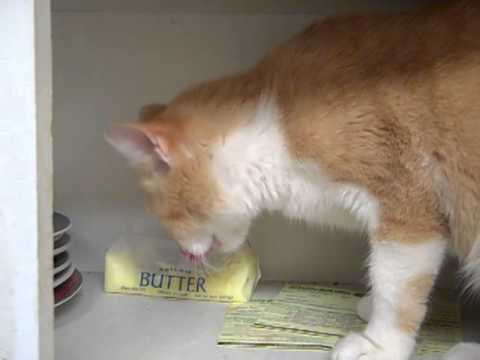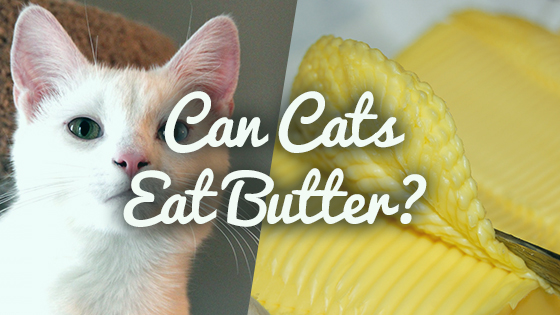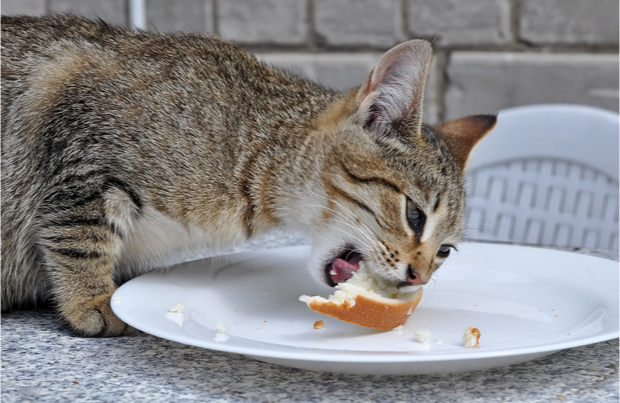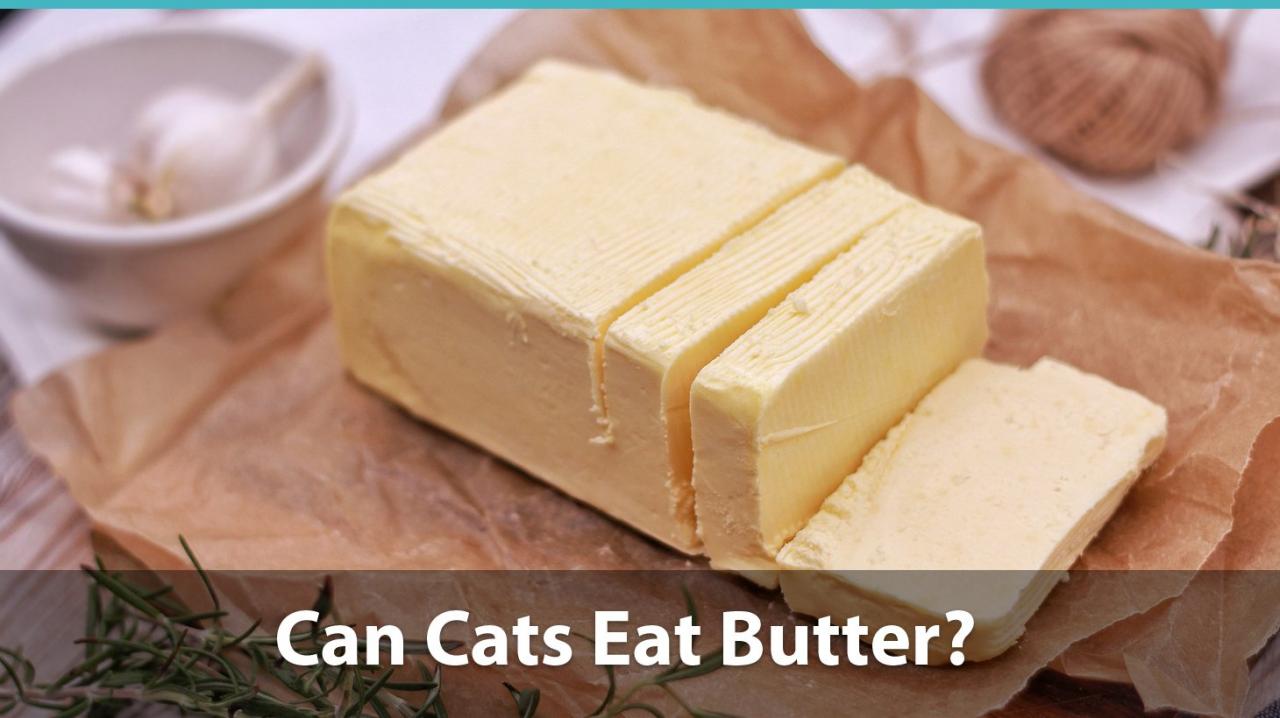Cats are some of the most mysterious beings to walk on this planet. What they like, what they don’t, and what they’re thinking is just something we can never really grasp. And cats keep us on our toes. We learn something new about them every day. If you’re still in shock knowing that cats are lactose intolerant, rest assured most people need time to come to terms with having to disassociate cats from milk.
Once you’ve gotten over the shock, the very first question that pops into your mind probably is: is all dairy bad for our feline friends?
You’re probably wondering this because more often than not when you’re munching away on your breakfast of butter toast, your cat comes in demanding a taste and you give in and allow them a small lick of butter. Now knowing what you do about their intolerance you’re concerned if by allowing them a lick of the dairy, have you caused them any health problems?
Can Cats Eat Butter?
We’re here to answer your questions and put your concerns to rest. Read on to find out where butter fits into your cat’s diet and what are the pros and cons of giving your cat butter.
Butter and Lactose Intolerance in Cats
We all know that butter is made up of either milk or cream and we also know that most of the milk products contain sugar-known lactose.
Now lactose is broken down by an enzyme known as lactase which isn’t produced in cats after they wean off of their mother’s milk. So if they have milked it can cause digestive distress.
However, here’s the surprising bit: butter doesn’t have that much lactose in it. Lactose in trace amounts!
This means that from a lactose tolerance point of view, butter is safe to be fed to your cat.
So then what is the real problem with butter then? The real threat that butter poses to cats is from all the excess fat present in it.
Fat, Butter, and Cats

Butter isn’t meant to be fed to cats because its composition isn’t cat friendly and because of that your cat’s digestive system won’t be able to properly deal with a foreign food that is not a part of their natural diet.
If you include butter into your cat’s everyday routine you’re paving the way to obesity for them. Sure a nice chunky cat is adorable but they sure aren’t healthy. Obese cats are much more prone to health complications such as heart ailments, diabetes, and pancreatitis. All of these will shorten your beloved feline’s lifespan considerably.
Foods rich in sugar and fat, if offered to cats, increase the chances of cancer. So make sure to keep desserts away from your cats.
Moreover, cats that have butter as a part of their regular diet are also likely to develop bone, skin, liver, and pancreatic disorders as well as UTIs.
Cats can also be allergic to milk and milk products such as butter and allergic reactions will trigger an upset stomach, vomiting, digestive problems, and discomfort.
Possible Health Benefits of Butter

You would think, considering all the health issues that can be caused by feeding your cat butter, no one would advocate feeding it to our feline friends but then you’d be wrong. There are certain cat owners out there who believe it is okay to feed cats butter since there are health benefits for cats where butter is concerned.
This comes especially from people who feed their cats homemade food. They argue that butter should be used as a replacement for oil.
Cat owners with underweight cats argue that butter is a great way to help them not only put on the necessary weight but also helps with weight management.
Some argue that butter helps a great deal with hairballs. Butter is said to grease the hairball and make it easy for your cat to throw it up.
Now we’re not saying that these health benefits don’t exist, we’re just saying butter isn’t made for cats to consume and all of the health benefits mentioned have more safe alternates that can be used instead.
Buying the right cat food can do wonders for weight management. The good kind uses animal fat such as chicken or will use the cut of meat that has the necessary fat. This is healthier than butter.
As far as hairballs are concerned, throwing them up comes naturally to cats and so they don’t need help to throw the hairballs out. So, butter is unnecessary for them. But let’s say that they do need help in hairball control, there are so many products available in the market to help with this issue which are designed especially for your cat. So why not avail of the safe option rather than opting for a homemade remedy?
What About Vegan Butter?

Since regular butter is out of the question, what about vegan butter? Vegan butter has less fat as opposed to animal fat but the replacement is vegetables with high-fat content which in turn makes it an unhealthy product for your cat.
Plant-based products such as butter and/or oil aren’t a healthy replacement for dairy products. Your cat probably won’t even like the taste since cats are obligate omnivores and don’t need or want plants in their diet.
Moreover, margarine won’t be doing your cat any favors either so it’s best if you avoid that too.
Conclusion
To sum it up, can cats eat butter? Yes. Should they eat butter? No. What we have to understand is that cats and humans are two different species. What may be good for us in terms of health benefits might not be good for our cats. So rather than skirting around the edges looking for some benefit to justify feeding these foods to our cats, we should focus on maintaining their diet with the food that is known to be good for them. Our cats trust us with their food so we should give them the best.
